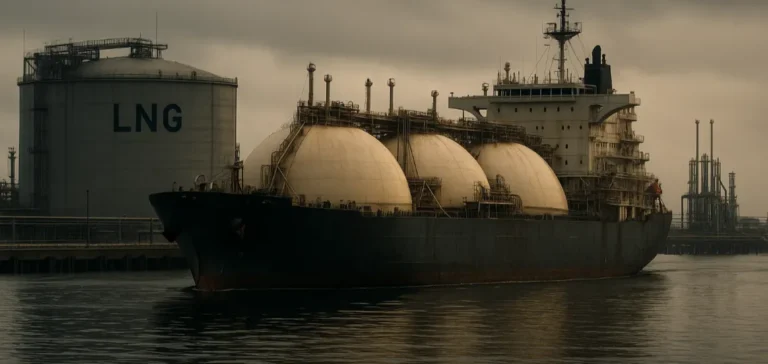The European Union spent an additional €930bn ($991bn) on fossil fuel imports during the energy crisis between 2021 and 2024, according to a report published by think tank Ember. This increase brought total spending to €1.8tn ($1.92tn), driven by surging gas prices which peaked at €350/MWh, compared to €15/MWh before the crisis.
Despite reducing Russian deliveries, fossil fuel imports still account for 58% of the Union’s energy needs, a level higher than in China (24%) or India (37%). The lack of significant diversification exposes the European market to increasing trade pressures from key suppliers.
Supplier concentration and geopolitical pressures
The report points out that 81% of EU gas imports now come from just four suppliers. The United States has become the leading supplier of oil and liquefied natural gas (LNG), while Qatar, the fifth-largest LNG supplier, recently linked its deliveries to a relaxation of environmental and labour standards. This concentration heightens the risk of market manipulation, particularly amid global trade tensions.
Price volatility has come at a high cost for EU member states, underlining the budgetary impact of import dependency. According to Ember, the additional spending alone equals several years’ worth of investment in grid infrastructure and electric technologies.
Electrification as a strategic lever
Between 2019 and 2024, expanded wind and solar capacity helped cut fossil fuel spending by €59bn ($62.8bn), by reducing the fossil share in electricity generation. However, around 82% of fossil fuels are still consumed outside the power sector, primarily in transport, heating, and industry.
The report estimates that electrification could halve fossil import dependence by 2040, provided available technologies are rolled out more rapidly. Currently, 22% of the Union’s energy demand is electrified, compared to 28% in China. Countries such as Norway (47%) and Sweden (33%) illustrate the still-untapped potential.
National and sectoral disparities
Data reveals wide disparities across Europe. In the residential sector, electrification rates range from 12% in Poland to 48% in Sweden. In steelmaking, the share reaches 57% in France compared to 18% in Slovakia. These gaps reflect differences in infrastructure, national policies, and technology access.
The report highlights the need for a coordinated approach to develop grids capable of supporting large-scale electrification. This strategy could mitigate long-term economic risks tied to fossil market volatility and supplier concentration.






















